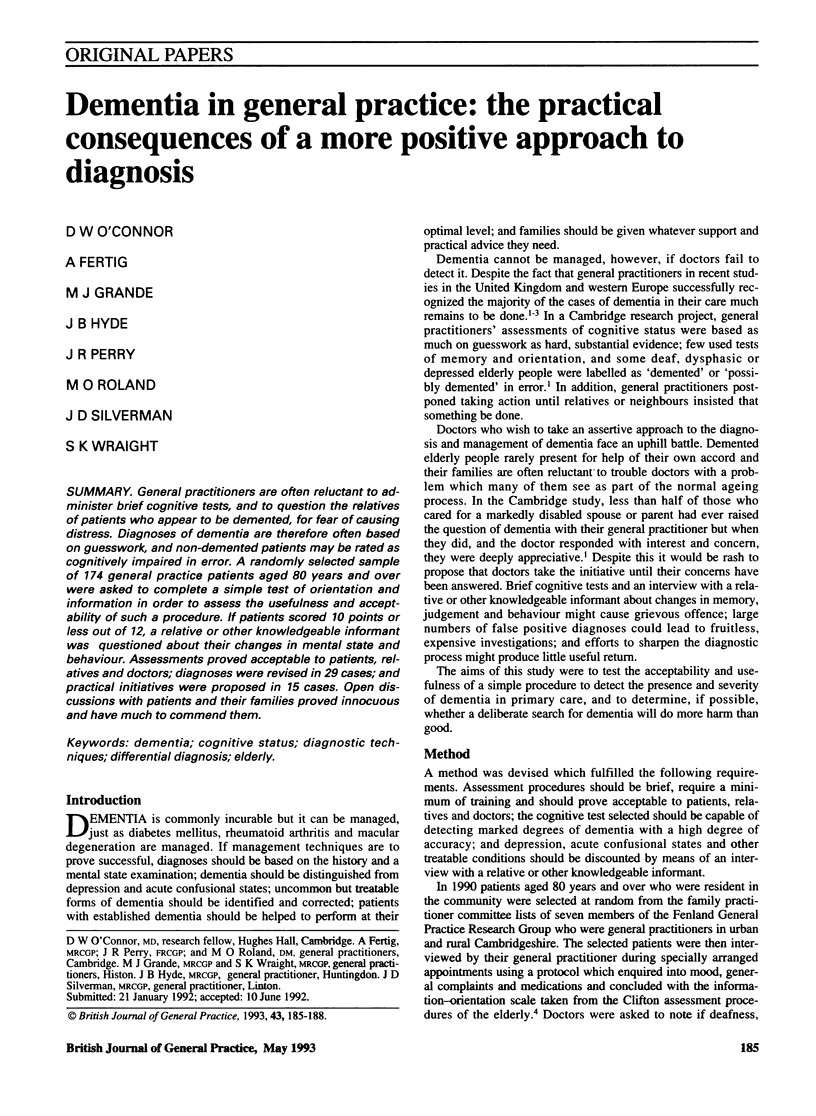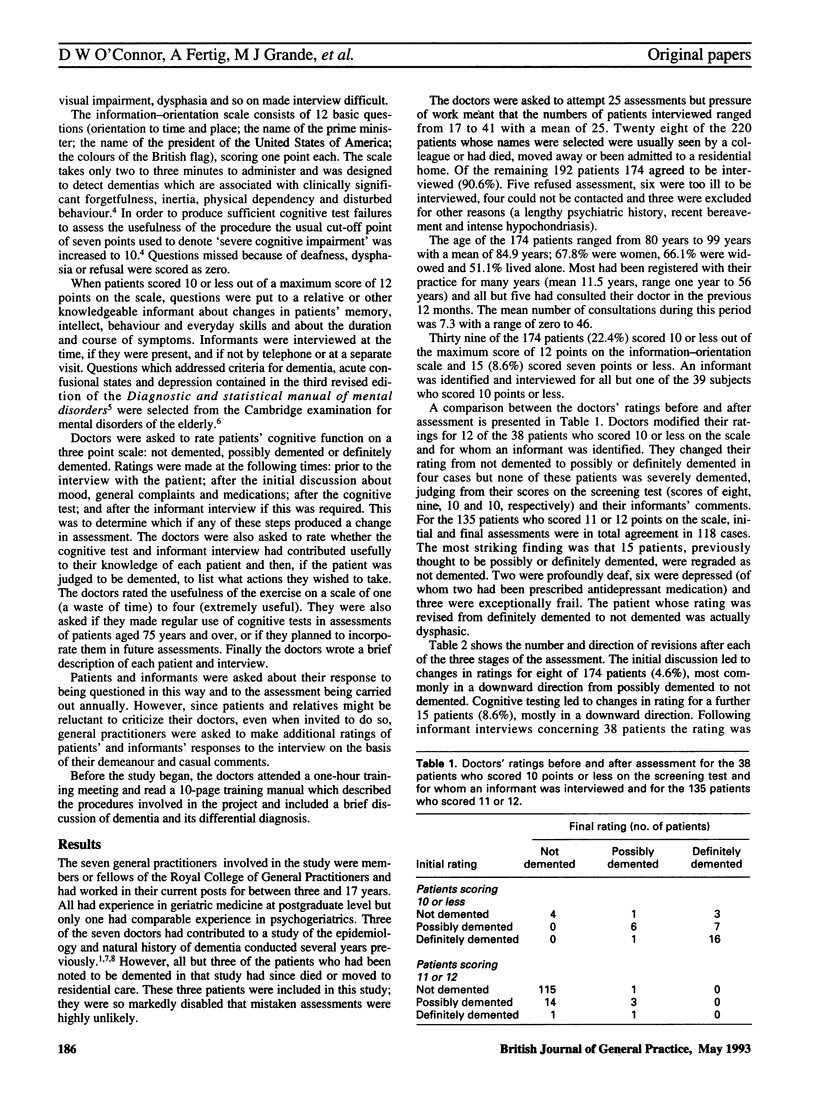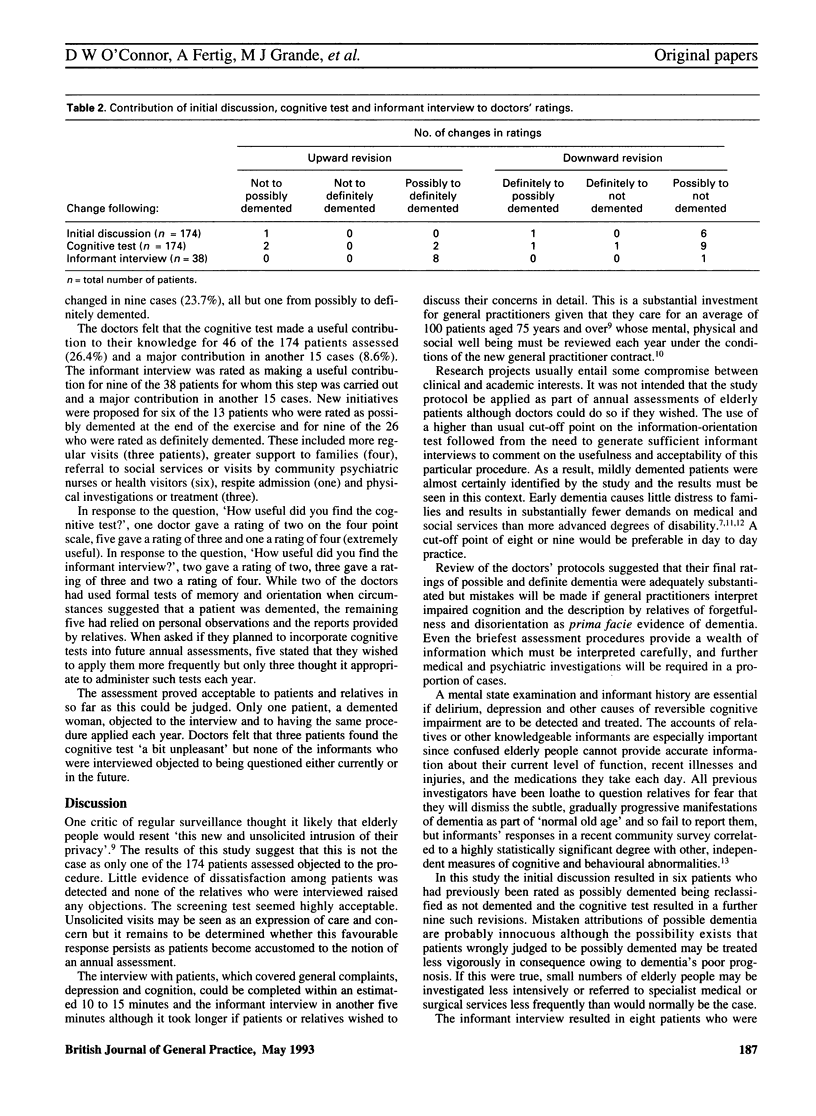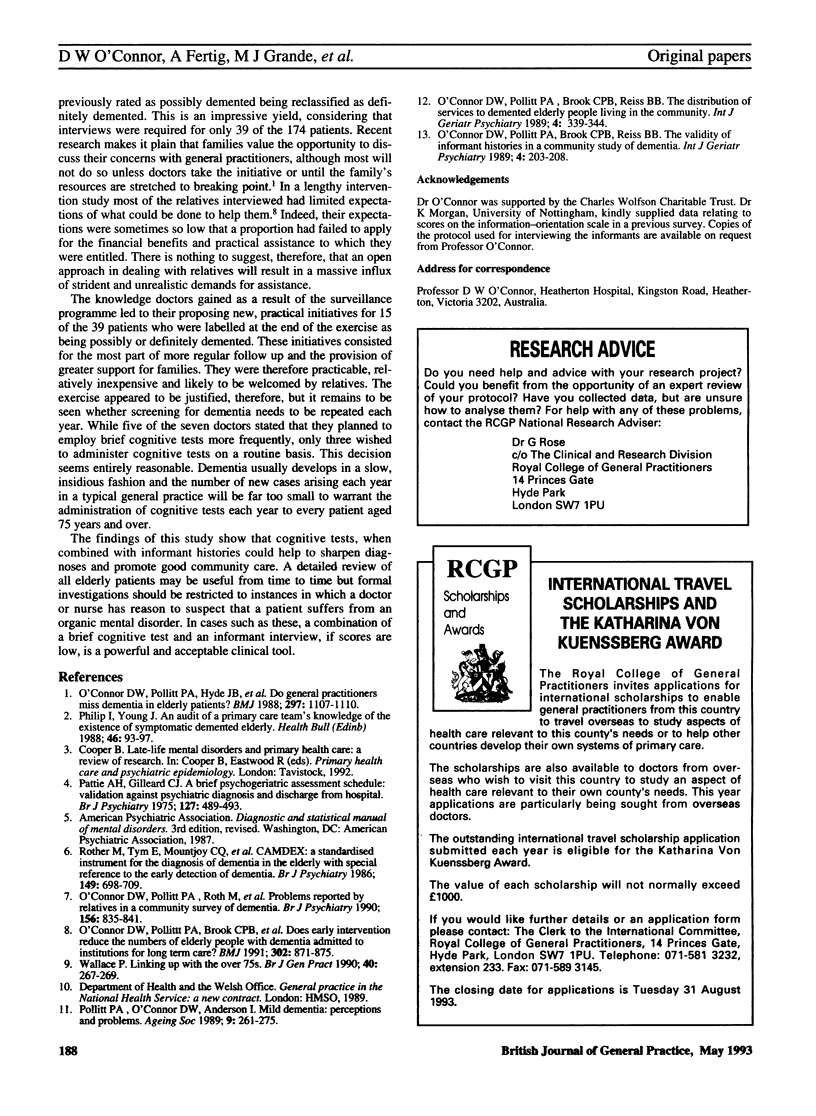Abstract
General practitioners are often reluctant to administer brief cognitive tests, and to question the relatives of patients who appear to be demented, for fear of causing distress. Diagnoses of dementia are therefore often based on guesswork, and non-demented patients may be rated as cognitively impaired in error. A randomly selected sample of 174 general practice patients aged 80 years and over were asked to complete a simple test of orientation and information in order to assess the usefulness and acceptability of such a procedure. If patients scored 10 points or less out of 12, a relative or other knowledgeable informant was questioned about their changes in mental state and behaviour. Assessments proved acceptable to patients, relatives and doctors; diagnoses were revised in 29 cases; and practical initiatives were proposed in 15 cases. Open discussions with patients and their families proved innocuous and have much to commend them.
Full text
PDF



Selected References
These references are in PubMed. This may not be the complete list of references from this article.
- O'Connor D. W., Pollitt P. A., Brook C. P., Reiss B. B., Roth M. Does early intervention reduce the number of elderly people with dementia admitted to institutions for long term care? BMJ. 1991 Apr 13;302(6781):871–875. doi: 10.1136/bmj.302.6781.871. [DOI] [PMC free article] [PubMed] [Google Scholar]
- O'Connor D. W., Pollitt P. A., Hyde J. B., Brook C. P., Reiss B. B., Roth M. Do general practitioners miss dementia in elderly patients? BMJ. 1988 Oct 29;297(6656):1107–1110. doi: 10.1136/bmj.297.6656.1107. [DOI] [PMC free article] [PubMed] [Google Scholar]
- O'Connor D. W., Pollitt P. A., Roth M., Brook C. P., Reiss B. B. Problems reported by relatives in a community study of dementia. Br J Psychiatry. 1990 Jun;156:835–841. doi: 10.1192/bjp.156.6.835. [DOI] [PubMed] [Google Scholar]
- Pattie A. H., Gilleard C. J. A brief psychogeriatric assessment schedule. Validation against psychiatric diagnosis and discharge from hospital. Br J Psychiatry. 1975 Nov;127:489–493. doi: 10.1192/bjp.127.5.489. [DOI] [PubMed] [Google Scholar]
- Philp I., Young J. An audit of a primary care team's knowledge of the existence of symptomatic demented elderly. Health Bull (Edinb) 1988 Mar;46(2):93–97. [PubMed] [Google Scholar]
- Roth M., Tym E., Mountjoy C. Q., Huppert F. A., Hendrie H., Verma S., Goddard R. CAMDEX. A standardised instrument for the diagnosis of mental disorder in the elderly with special reference to the early detection of dementia. Br J Psychiatry. 1986 Dec;149:698–709. doi: 10.1192/bjp.149.6.698. [DOI] [PubMed] [Google Scholar]
- Wallace P. Linking up with the over 75s. Br J Gen Pract. 1990 Jul;40(336):267–268. [PMC free article] [PubMed] [Google Scholar]


